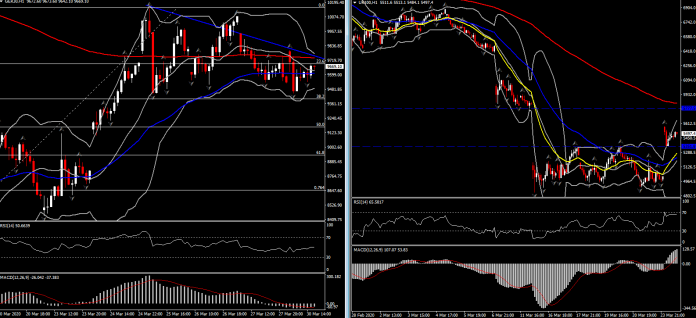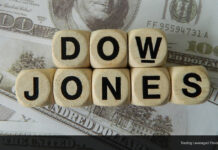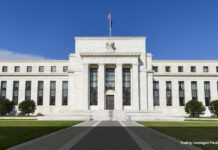The Eurozone ESI confidence index plunged, as did Switzerland’s KOF index, as expected, while German state inflation declined. However all eyes today are still on Trump’s speech along with the US slate which has just February pending home sales and the Dallas Fed manufacturing index.
German HICP inflation fell back to just 1.3% y/y from 1.7% y/y in the previous month. The national rate dropped to 1.4% y/y from 1.7% y/y, with a -0.9% y/y decline in energy prices a driving factor. Goods price inflation also eased markedly as public life is increasingly restricted, although food price inflation jumped to 3.7% y/y and that is likely to go up further, as fresh food prices will go up with farmers across Europe struggling to cope with the lack of seasonal workers, who usually come from other countries.
Despite the European stock markets being up from early lows, they are still broadly in negative territory, with the GER30 down 0.75% and the UK100 -0.68%. Spanish IBEX and Italian MIB are underperforming as both countries battle with a still sharply rising death toll and as further restrictions for companies come into effect in Spain. A -7.8 bp decline in Gilt yields led a rally in core EGBs. The German 10-year dropped back -5.2 bp to -0.536%.
The announcement that Toyota will close all plans in Europe and Russia, with plants in Europe not expected to reopen until April 20 at the earliest, further weigh on European stocks. Along with stocks, Eurozone spreads have widened, both signals of continuing risk-off trades.
Markets are clearly not happy with the ECB’s willingness to use OMT and the announcement that the European Stability fund, which offers a sort of “Eurobonds-light”, will be strengthened. That may explain why ECB Vice President De Guindos continues to support the creation of “Coronabonds”, which could have a strong signalling effect at a time when crisis measures trigger a fall back to a focus on national policies.
Germany’s council of economic advisers meanwhile predicts the worst recession since 2009 for this year, although it also sees a relatively strong rebound in 2021. The special report from Germany’s council of economic advisers (SVR) said today that in the baseline scenario of three different outcomes, they expect a contraction of 2.8% this year, followed by a rebound of up to 3.7% in 2021. The baseline scenario assumes that economic activity will start to stabilise over the summer. In a risk scenario that assumes a longer production stop, the model predicts a contraction of 5.4% this year, followed by 4.9% growth next year as demand and production catches up. Clearly it all depends on how long restrictions will last, but with the first tests that can reliably say whether someone has had the virus and already built up immunity, Germany is now preparing broad based testing to determine who can go back to work. The reports will help officials to see whether restrictions can be relaxed in coming months.
Looking ahead, consumer confidence, the ADP jobs report, manufacturing ISM, trade, factory orders, and finally, the March BLS employment report are all due. Month- and quarter-end rebalancing is expected to give Wall Street a boost.
Click here to access the HotForex Economic Calendar
Andria Pichidi
Market Analyst
Disclaimer: This material is provided as a general marketing communication for information purposes only and does not constitute an independent investment research. Nothing in this communication contains, or should be considered as containing, an investment advice or an investment recommendation or a solicitation for the purpose of buying or selling of any financial instrument. All information provided is gathered from reputable sources and any information containing an indication of past performance is not a guarantee or reliable indicator of future performance. Users acknowledge that any investment in Leveraged Products is characterized by a certain degree of uncertainty and that any investment of this nature involves a high level of risk for which the users are solely responsible and liable. We assume no liability for any loss arising from any investment made based on the information provided in this communication. This communication must not be reproduced or further distributed without our prior written permission.



















